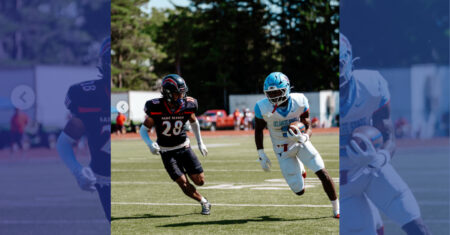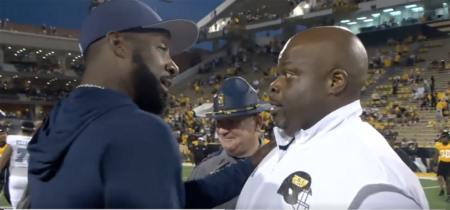As the election looms closer, it’s easy not to think of people in prison at all, except maybe as statistics. Those in prison are easy to dismiss. Yet it would surprise most people that the people in here are very politically astute. There is a reason for that: it’s because elected officials’ politics disproportionately impact marginalized communities. Perhaps more than any other demographic, their poli- cies directly affect our lives. Black and Brown communities and poor people of all races have long been targets of politicians and their tough-on-crime stances.
People in prison realize our statistical importance. In Illinois, each person’s vote is not weighted equally. A single vote for a state representative in Cook County will have less influence than one in downstate Randolph County. That’s because Randolph County is located in Illinois House District 116, which is home to Menard and Pinckneyville prisons. Together, they hold more than 3,700 people, nearly half of whom are from Cook County.
According to the latest data from the Illinois Department of Corrections, 27,601 people were incarcerated in Illinois prisons as of the end of March. Almost half of them (11,743) were from Cook County. More than half were Black—but the prisons they are incarcerated in are often in rural, white counties.
The census counts incarcerated people as residents of the prison in which they are housed, which are most often in rural areas, rather than residents of their permanent, pre-incarceration communities.
This is sometimes called prison-based gerrymandering. The practice artificially inflates the populations of rural areas where prisons are located. Those imprisoned in Randolph County account for more than one in 25 residents of House District 116. The prisoners cannot vote, but they are counted as residents of the 116th District by the census, which artificially increases the number of state and federal representatives that county gets, giving voters in the district a bit more power. This leads to greater political influence and increased economic resources for the largely white, rural areas—while costing the urban, poor, mostly Black communities the same economic resources where they are badly needed.
This discriminatory and anti-democratic policy violates the fundamental principle of “one person, one vote.” That principle requires election districts to hold roughly the same number of constituents, so that everyone is represented equally.
“Residents in Chicago are actually having their political power deflated,” Kasey Henricks told Medill Reports in 2019. Henricks, a professor of sociology at the University of Tennessee, co-authored a 2017 report on racial inequality in Chicago that found the political power of predominantly white downstate communities is “artificially inflated” at the expense of predominantly Black and Brown districts that are impacted by mass incarceration.
Debate about prison gerrymandering is often framed as a partisan battle, with Demo- crats advocating for reform, and Republicans opposing it. But that’s not true: both parties use prison gerrymandering. While it’s true that Republican districts hold most of the prisoners, Democratic districts have prisons as well. And the 2021 SAFE-T Act, passed by a majority-Democratic Illinois General Assembly, delayed reforming prison gerrymandering until 2031.
People in prison carefully watch candidates who use the “tough-on-crime” platform. Tough-on-crime is an old standby for not having real answers to the problems that face our communities. It’s politics, with a side order of fear-mongering. It’s a code word. When candidates say they’re tough on crime, what they really mean is, “we’ll put more Black people in prison.”
Tough-on-crime doesn’t lead to a crack- down on embezzlement. It doesn’t lead to more police in predominantly white and affluent neighborhoods. It means “we’ll keep those poor Black people out of your neighborhoods.” What poor and Black and Brown communities need is further economic investment and development, jobs and opportunities. These communities are already overwhelmed with institutionalized racist and classist oppression. They don’t need to be cracked down upon. They need to be lifted up. They need inclusion, not oppression.
The police, media, and politicians have made the universal face of crime that of young Black and Latino men, while at the same time making the face of the “victims” that of a white woman or child. No one in power cares if a Black person is brutally murdered. It barely garners mention.
If, however, a white person is killed by a Black person, it’s sensationalized. You’ll find it in every newscast. Politicians will comment on it, police will react to it, the media pounds it into you. You never hear the exact words, they are much too politically correct for that, but the underlying message says that Black people are dangerous. Politicians in turn climb over the top of each other to shout “lock them up,” and promise to be even tougher on crime than the other guy. Their tacit platform is, “only we can keep you safe from Black people.”
This is what tough-on-crime really boils down to: it’s a scam, a high-stakes game of three-card monte. It’s a misdirection. Politicians are really adept at reacting to crime, and at making these somber, ridiculous statements that they could have stopped it if only they had control.
What they don’t want you to know is that the game is fixed. Crime is secretly good for candidates. They love to promise to protect you, that they have a plan, and the answers. Sadly their plans are all the same: tougher laws, longer prison sentences, and of course the smile and wink with a promise to keep “those people” out of your neighborhoods.
What you never hear are plans to stop police brutality, or plans to dismantle structural in- equality, or plans to invest in Black and Brown communities. Instead of normalizing injustice, where are the plans to build up those communities? How can it be better to spend untold millions of dollars on prisons, than spending those same dollars to bolster Black-owned businesses, to create jobs, and to improve schooling?
Doesn’t it seem like our priorities are backwards?
Tough-on-crime is lazy. It’s a Band-Aid on a gunshot wound. Instead of asking how a politician will react to crime, ask them what their plans are to prevent it. Ask them their plans to end inequality and injustice. Ask them about inclusion and investment in the poor.
If all they can come up with is tougher laws and prisons, then look for a better candidate.
Anthony Ehlers is a writer incarcerated at Stateville Correctional Center who contributes a regular column to the Reader.







